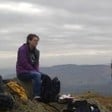Arts and Culture 17 September 2014
Abdul Karim Sabawi, the Gaza-born author of ten novels and collections of poetry, has for the first time issued a volume of his poems translated into English.
The collection, Blood for Freedom, which is available to read as an e-book from the author’s website, contains 21 poems written at various stages of Sabawi’s career. They reflect his main literary preoccupations and subjects – the Palestinian issue, Palestinian culture and its vulnerability under occupation, and the condition of exile.
Sabawi himself became a refugee from Gaza in 1967, when he had to flee along with his mother and other family members to join his father in Jordan, after he was expelled by the Israeli military. Sabawi himself had graduated from Cairo University and worked as a teacher in Gaza before joining the resistance.
One of the earliest poems in the new collection, Erasure, was written by Sabawi just after arriving in Jordan. It resonates with Sabawi’s despair and a sense of the dislocation and destruction being visited upon the Palestinians and their culture. Here is an extract:
They haven’t colonized Mars yet
And the moon is barren
Uninhabitable
So carry your children
Your memories
And follow me
We can live in the books of history
They’ll write about us…
“The wicked Bedouins
Landed in Baghdad
They landed in Yafa
They landed in Grenada
Then they moved on
They packed their belongings
And rode on their camels
They didn’t leave their print on the red clay
And all their artifacts
Were faded
With the passing of the years”
Barred from Gaza
Sabawi now lives in Australia, where his daughter Samah is a well-known writer and activist for Palestinian rights.
Sabawi has been able to visit Gaza on several occasions and has invested in cultural projects there, his daughter noted in a message to The Electronic Intifada. However, the Egyptian government’s current closure of the Rafah crossing to most travelers meant that he was unable to return to accept a major award this year, conferred on him for his contribution to Gaza’s literature.
Sabawi’s list of publications spans over thirty years and his novels in Arabic include the Canaan Quartet, a series of books exploring Palestine’s history during the nineteenth and early twentieth centuries. One, The Phoenix, was translated into English and published during the 1990s, but is now out of print; the Arabic original won the 1993 Gibran International Literary Prize.
According to Sabawi’s own website, historical themes and the legacy of the pan-Arabism of his early years affected his attitude towards Palestinian culture and his use of folk tales and traditional literary references, such as Antarah Ibn Shaddad, a sixth-century poet well-known in Arabic literature. The video above combines one of Sabawi’s poems, which brings together the legend of Antarah and his beloved Abla, with the Palestinian children of today, and pictures drawn by children from Gaza.







